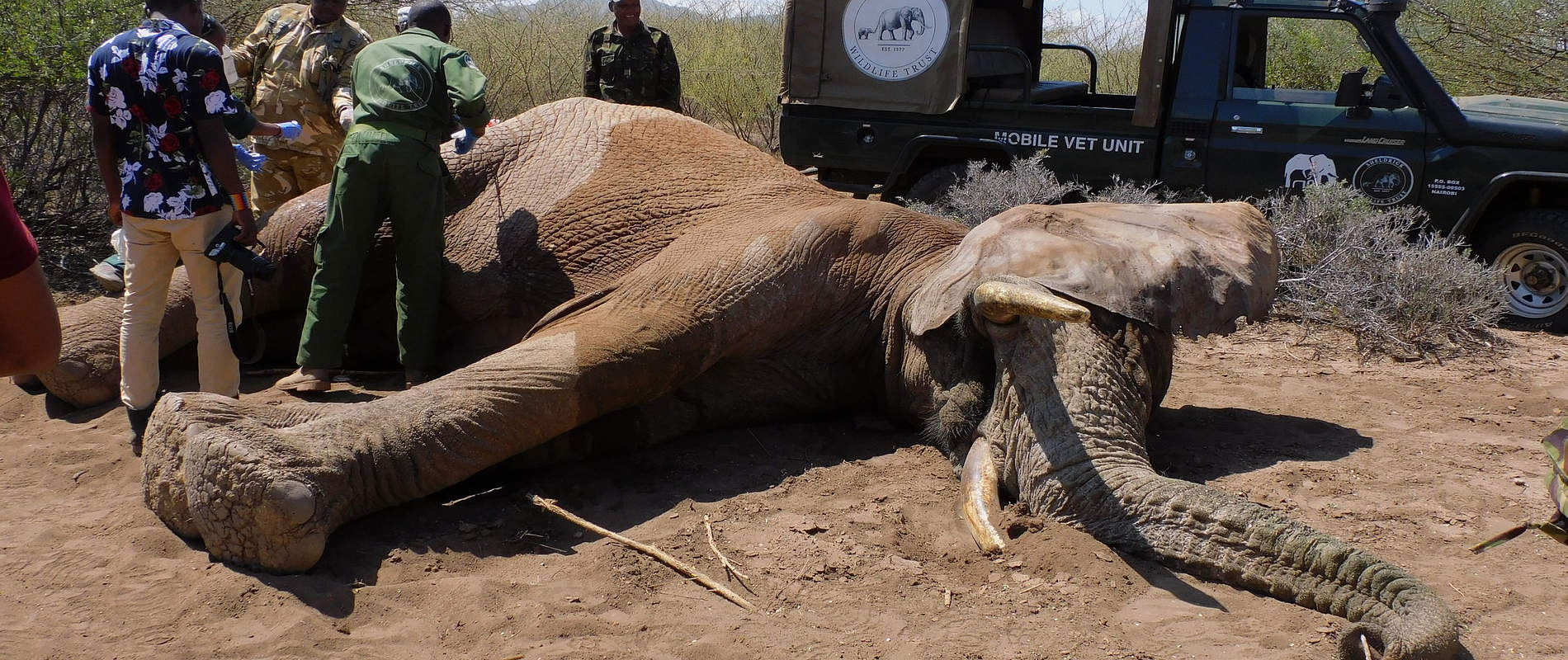The Sheldrick Wildlife Trust (SWT), in conjunction with the Kenya Wildlife Service (KWS) operate six Mobile Veterinary Units. Within the quarter, the Units attended to a total of 195 wildlife cases involving 265 animals.
There were 68 elephant, 16 predator, 19 rhino, 56 plains game, 18 giraffes, 12 buffalo cases as well as 3 security dogs cases and relocation of 5 ostriches and treatment of another. During the same relocation operation in February, 6 wildebeest were also moved from the same area due to over population.
Out of the poaching cases, there were 51 snaring cases, 20 spear, 10 arrow and 2 bullet wounds. The majority of the snare cases were plains game with 27 zebra, 3 buffalo, 2 waterbuck, 1 impala and 1 wildebeest treated for snare related injuries as well as 12 giraffe and 3 elephants. Only 1 giraffe died from the injuries and 4 zebras given a guarded prognosis; the rest were treated successfully. Of the 32 other poaching cases, there were only 3 deaths; a post-mortem of a giraffe which revealed an arrow wound, another giraffe which died from spear injuries before the vet arrived and an elephant which was euthanised due to a severe spear injury. Five elephants were also given a guarded prognosis: 2 for bullet wounds and 3 for spear injuries.
There has been an increase in human-wildlife conflict cases during this quarter involving a various species including 2 elephants and 3 colobus monkeys which were electrocuted due to faulty wiring, 1 elephant was treated for a bullet wound and 9 for spear wounds due to conflict with the communities, 3 lions were speared and 2 relocated due to proximity to people and/or livestock predation. A total of 29 animals (oryx, buffalo, 7 elephants, 13 giraffe, 5 waterbucks 2 zebra) were relocated to alleviate potential human-wildlife conflict.
Of the cases there was a 73% success rate and only 6% death rate due to poaching or human-wildlife conflict.
